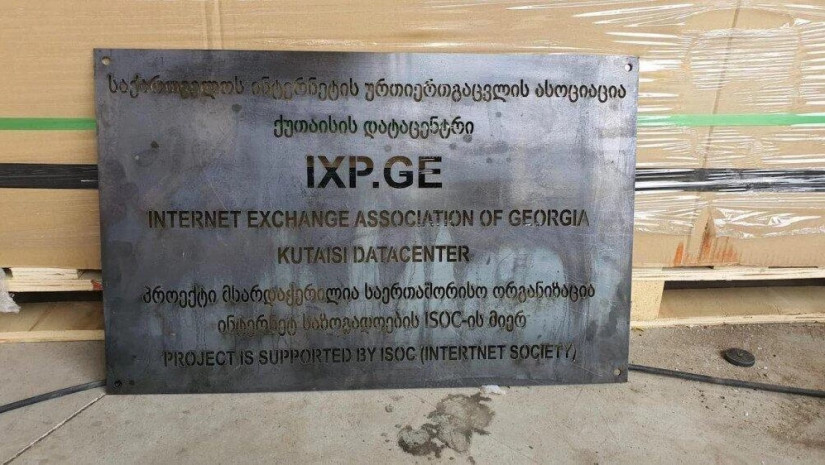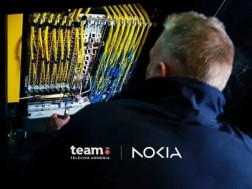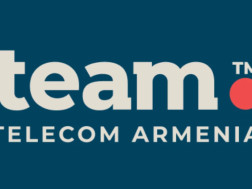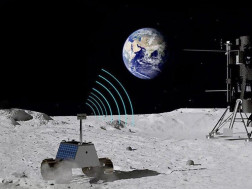The Internet community in Georgia, led by the Telecom Operators’ Association of Georgia, is preparing to launch a new Internet exchange point (IXP) in September 2021, supported by the Internet Society. It will have two Points of Presence (PoP): in Kutaisi, in the west of the country, and in the capital Tbilisi.
Internet Society asked Ucha Seturi, Chair of the Telecom Operators’ Association what motivated them to develop the IXP and their plans for the future.
Internet Society: How many IXPs does Georgia have? Is this the first?
Ucha Seturi: Almost four years ago, the Telecom Operators’ Association that I’m involved with was the founder of the first IXP in Tbilisi along with two partners — Newtelco Georgia (data center) and the National Research and Education Network (GRENA). Unfortunately, this did not become operational due to the withdrawal of one of the key partners and the establishment of commercial exchange, but this again did not take off.
So this will be the first operational IXP with two interconnected nodes and 17 operators (12 who are members and five non-members) from the beginning.
What impact will this have on local connectivity?
The IXP will not only reduce connectivity costs but is expected to improve access to faster Internet connectivity and therefore improve quality of service. The ability to interconnect networks at up to 100 Gb/s will make services such as video on demand and videoconferencing practical in more regions, which is particularly important for educational institutions as they struggle to adapt to the Coronavirus pandemic.
Can you talk about the support you received from the Internet Society and how this helped in the IXP building process?
Jane Coffin, Senior Vice President, Internet Growth, Internet Society, and Maarit Palovirta, former Senior Manager, Regional Affairs Europe, Internet Society did a presentation about IXPs in Tbilisi in 2011, which encouraged me to join the Telecom Operators’ Association and start utilizing the IXP toolkit. I also became a member of the local Internet Society Chapter, and then a founder member and organizer of the local Georgian national Internet Governance Forum as well as the Georgia Network Operators Group (GeoNOG) in 2015.
These activities were all supported by the Internet Society, with the main recurring issue being connectivity and the need for an IXP. So I started to participate in other Internet Society-supported meetings such as the European Dialogue on Internet Governance (EuroDIG), the South Eastern European Dialogue on Internet Governance (SEEDIG), and the Central Asian Internet Governance Forum (CAIGF) along with other regional Network Operator Group meetings (NOGs) where IXPs were discussed. I then became an Associate Member of the European Internet Exchange Association (Euro-IX) and member candidate of the European Internet Services Providers’ Association (EuroISPA), which inspired me to start the Kutaisi IXP project.
I had already been working directly with the Internet Society through its Community Network (CN) initiative that had supported the Tusheti CN, so the Internet Society staff were already known to me. We started to have regular fortnightly meetings with Max Stucchi, Regional Technical Advisor – Europe, Kevin Meynell, Senior Manager, Technical and Operational Engagement, and Juan Peirano, Senior Policy Advisor, who have provided guidance on some of the things needed to establish [an IXP]. They guided me on how to implement and to operate an IXP, helped obtain the necessary number of resources from the Regional Internet Registry for Europe, the Middle East, and parts of Central Asia (RIPE NCC), and provided the necessary equipment to start up the IXP.
So yes, the Internet Society’s support has been invaluable in this process.
You said you were concluding an agreement with Cloud 9 to host the IXP in Tbilisi?
Cloud9 is now a member of the IXP and is hosting the Tbilisi PoP.
The “Expert Mission on Neutral Public Internet Exchange Points” conference took place on 1-2 June 2021. Is it part of the government’s effort to push for IXP development?
[T]he event that was […] organized by the Communication Commission, which is the regulatory body for telecommunications in Georgia. I was fully involved and gave a 15-minute speech about the existing situation and our IXP project, so they understand the importance of having a regulatory regime that facilitates and support a commercially neutral IXP that will benefit the entire country.
Our Prime Minister Irakli Garibashvil is counting on digital transformation to drive economic growth, and has stated that the interconnection of local networks “can move Georgia’s economy forward and transform it into a new dimension.” The Ministry of Economy and Sustainable Development and the Communication Commission of Georgia are therefore behind the establishment of the IXP.
The government of Georgia, via the EU’s Eastern Partnership Agreement, will be providing €3.9 billion to help improve transport and connectivity. What share of that is going to IXP development?
Georgia is indeed cooperating with the European Union (EU) in this direction, and I was involved in the planning stage with the European Investment Bank (EIB) and provided information on the connectivity and last-mile challenges. We’re currently negotiating with the Ministry of Telecommunications to obtain low-cost loans for the IXP Association’s members, particularly those installing fiber in rural areas. Other support is going to the so-called OpenNet project which is a state-driven initiative to provide fiber in unconnected areas, and this will utilize the IXPs in Kutaisi and Tbilisi.
When do you plan to launch?
We already have the Internet Society-funded hardware and are just finishing work on the Kutaisi PoP. This was built from the ground up from the foundations, and we’re currently in the process of installing the electricity, cooling, and Uninterruptible Power Supply (UPS) systems. We’re hoping to start testing in August, and seven members are ready to connect.
At the Tbilisi PoP, we have concluded a hosting agreement with Cloud9 and installed the hardware. At this point, we already have four members ready to connect. The participation of Cloud9 will also ensure we have local access to local content, so things are looking good for a launch in September 2021.
















